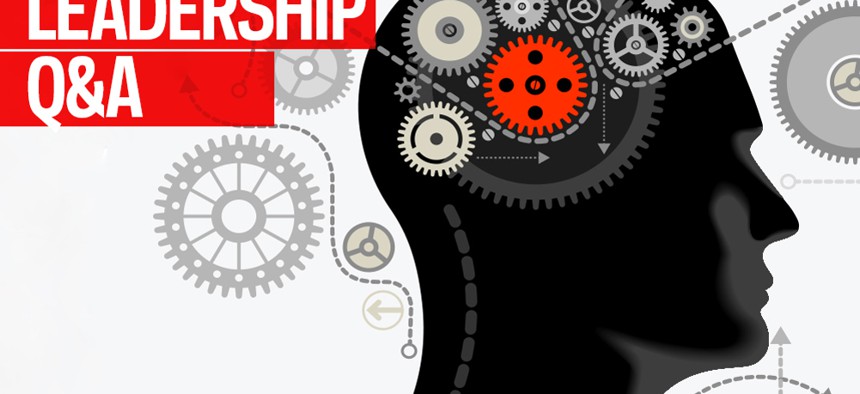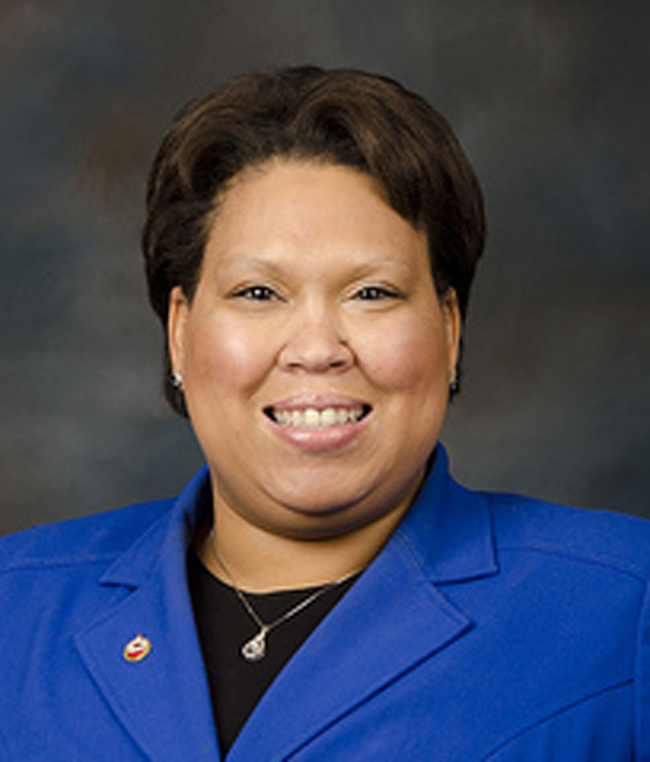
How I Lead: Empowering the Air Force’s Executive Team
‘Combat civilian’ Veronica Hinton learned how to delegate on the front lines.
Veronica E. Hinton is director of the Air Force Senior Executive Management Office. She is responsible for recruitment, reassignment, development, talent management and succession planning for senior civilian staff, which includes members of the Senior Executive Service and Defense Intelligence SES.
What is the best leadership lesson you have learned?
Lead by influence, not by position. I can get my team to do what I want by virtue of my authority, but I think that is the easy way out. Instead, I want people to perform because I inspire them and they are invested in the success of our mission and office, not because I said so.
How did you get to where you are today?
Outstanding supervisors and mentors who pushed me to tackle tasks or take jobs that I would have otherwise not been interested in doing. These opportunities turned out to be some of my best learning and growth experiences.
What leadership lessons do you try to convey to your team?
There are three leadership points I find myself reiterating: First, I remind my subordinate supervisors to delegate and empower their employees, and I do the same with them. When I was a young supervisor, I tended to be very hands-on with my employees, taking a “directive” leadership approach. I eventually learned that it was ineffective, not only demotivating the team, who interpreted it as a lack of trust, but also I was running myself ragged trying to cover everything. As I matured and became more comfortable as a leader, I started focusing more on delegation and empowerment. I still make sure my subordinate supervisors and employees have the resources and tools needed to do their jobs, but I try to focus more of my energy on coaching, guiding, and providing clear expectations and goals.

Second, I routinely convey that being a leader is not easy and it is not static. You have to 1) be open to learning and improving yourself; 2) know and accept that you will make mistakes; 3) adapt leadership styles based on the situation and engagement; 4) constantly work on bettering relationships with your employees, your bosses, and your customers; and 5) know that your every move is watched, so be consistent, be fair, be transparent and model the behavior you expect of yourself and others.
Third, I remind my team to work through differences and not retreat behind them. It is easy to become entrenched in one’s position. Trying to understand different perspectives and positions in order to find common ground is challenging and takes time, but I believe ultimately yields stronger results with better relationships and stakeholder buy-in.
What do you look for in potential employees when making hiring decisions?
Enthusiasm, commitment, flexibility and someone who is comfortable with ambiguity. I can teach the technical aspects of a job if someone has some technical proficiency, but it’s hard to teach flexibility, adaptability and passion.
What do you do after work for fun or to relax?
I show love for my home teams. During the summer, you’ll find me at Nationals Park after work and on the weekends. In the fall, Sundays are dedicated to the trek out to FedEx Field to watch the Redskins. Wizards and Caps games are sprinkled throughout the spring.
Describe your average day in 10 words or less.
Briefings, planning, teaching, impromptu meetings and tons of phone calls.
What strengths do you bring to your organization?
Our customers are the most senior leaders in the Air Force, and my job is to make sure my team is prepared to support them with top-notch customer service. Since it’s easy to get spun up in this line of business, I try to bring a calming and grounded leadership influence into an otherwise dynamic, high-touch, high visibility portfolio.
What is your strategy for interactions with your supervisor?
Get to him before he gets to me. That approach has served me well throughout my career. If my boss is blindsided or not up to date on my projects, then I have not done my job properly. I tell my employees, if I am thinking of their project and wondering about the status and have to ask them, then we are not in sync. I hold myself to that same standard in dealing with my supervisor.
What career accomplishment are you most proud of?
My assignment in Turkey from 2002 to 2004. I was reluctant to go, but it turned out to be one of the best jobs I’ve had. I was there during the start of Operation Iraqi Freedom when we had to evacuate family members and nonessential employees back to the United States. Since I was an essential employee, I had to stay and assist base leadership with human resources management activities. In preparation, I learned about and executed military command, control and operations. I earned the nickname “Combat Civilian” by my military peers, which I still consider one of my most cherished badges of honor. If I was not prodded to go to Turkey by one of my mentors, I would have missed an extraordinary learning opportunity.
How do you involve your employees to ensure everyone is on board with a new idea?
The key word in that question is “involve.” That’s exactly what I strive to do. It takes time to provide context and solicit input and opinions, but it is a critical step if I’m going to get any kind of buy-in from my team. As I mentioned earlier, I want them to want to perform because they are personally motivated and invested in our vision, not because I am the boss. I can’t reach that level of trust and engagement if I do not take time to show them that I value their ideas and input.
Tell me something your co-workers do not know about you.
I hear people remark how calm, cool, and collected I am under pressure. I guess I fake it well. On the inside, I’m a bundle of nerves that I have to consciously try to quell. I had a mentor once remind me that as the subject matter expert, nine times out of 10, I will know more about the subject than the person to which I am talking. When I am feeling pressure, I remind myself to have confidence in my expertise and skills.
What motivates you?
The Air Force’s core values: integrity first, service before self, and excellence in all we do. My father was in the Air Force, I grew up an Air Force “brat,” and I started working for the Air Force fresh out of college. It’s all I’ve known, and those values have been instilled in me since I was a young girl. They motivate me to be my best or give it my all to get there, both professionally and personally.







